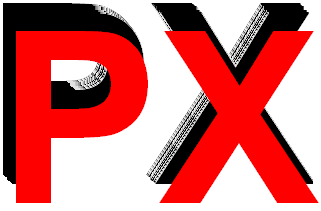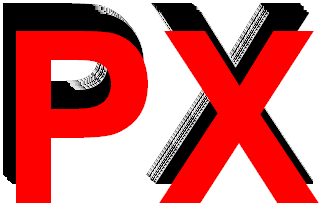Two Opposing Dimensions of The Ecuadorian President and His Inform to the Nation from New York
- By Poetry X
- 13 April, 2014
- 2 Comments
Rafael Correa is at least one of the most intriguing political personalities of the day. It is like we are talking about two different people, but it is the same person treated in contradictory terms in two opposing dimensions. In the academia world he is a highly and accomplished economist with accreditations and titles from Universities in the United States and Europe, including doctor honoris causa diplomas for his academic contribution. However, in the media stage specially with the press, Rafael Correa is one the most vilified leaders of the world at the point that inside and outside Ecuador he has been called a “dictator.” In fact, back in September 2011 when the Ecuadorian President came to the US, Union City Mayor Brian Stack condemned President Correa for multiple evil doings including violations against “freedom of expression” – Stack was so outraged with Correa’s attack on freedom of expression that he banned any participation or the Ecuadorian president to talk to the Ecuadorian community in Union city [Fox News Nov 21-2011].
However, April of 2014 would be the chance to see and listen the famous, or maybe the infamous, Ecuadorian President. Rafael Correa would give academic conferences in Yale and Harvard, besides visiting MIT (Massachusetts Institute of Technology). The first option was Yale since it is close to New York, unfortunately Yale gave no chance to outsiders for that conference to attend. Then Harvard seemed to be a much better bet but suddenly many of the invited groups would get disinvited. However Harvard gave the chance for a lottery of tickets to be able to access to that conference, sadly I was not picked amount the winners. The reason for Harvard and Yale not giving more access for outsiders was simply Correa is an extremely popular personality and the spaces were taken immediately by their very students. So, at least from this we can say President Correa is a world leader that has a big impact on the most powerful academic entities. In the academic world, many agree what Correa has achieved in Ecuador is a miracle [Huffington Post Dec 19-2012].
There were two more remaining options to see the Ecuadorian President in person. One was an artistic meeting on Friday April 11th, but the second option seemed more attractive, the “Enlace Ciudadano 369” at the New York Hall of Science, which is pretty much like an inform to the nation that takes place in the public media and in different cities every Saturday [Enlace 369]. So there I was, in the middle of an ocean of yellow blue and red flags with the people extremely excited with the presence of their “Presidente Correa” which is extremely strange when you watch the Latino networks where Correa is constantly attacked for a wide variety reasons. In fact the FBI found CNN en Espanol received funding from the Isaias Brothers, two corrupt Ecuadorian business men with a order of extradition but that US refuses to honor. So CNN en Espanol was fulfilling an agenda dictated by two of the most vile Correa’s enemies, since his administration gave follow up to the judicial process that resulted in their running away from justice [Ecuadorian Times Feb 13-2014]. Quite frankly the other networks, Univision and Telemundo, are not more friendly to the Correa administration than CNN en Espanol.
This inform to the nation itself is very controversial for the media since according to them it is wasting tax payers money in government propaganda. However, in the Latin American experience it is important to know, previous presidents managed their businesses behind closed doors, and many times passed laws while barricaded behind their armies. In fact, Ecuador had seven presidents in just ten years right before Correa was elected – we must know that next time we hear Correa being called a dictator. Another important aspect of the Correa administration is that it is self claimed a revolutionary movement, but through the ballot – a democratic revolution. Therefore, the fundamental component of a revolution is to keep the public informed and mobilized, especially to counteract the powerful groups that control the media outlets. Actually, there are a few segments of this inform to the nation, especially dedicated to unmask the lies told by the media throughout the week. There is also an economic advantage to the lower classes since thousands of people assist to these inform to the nation events. The high public assistance gives an important income opportunity to the informal commerce that belong to the lower working class. Another point to mention is the press plays a crucial political force in Latin America as an extended arm of powerful groups conspiring agains governments that threat their interests. In fact, on september 10-2011 Ecuador almost suffered a new coup de etat. The media reporting was one of the leading factors to generate such a political crisis and the conspirators resulted to be in contact and receiving funding from groups in the US. After that, it became more evident the necessity of the Ecuadorian government to have a space to debunk the multiple attacks coming from the press and from multiple powerful entities including US corporations [RT News].
Regarding the Enlace Ciudadano itself, there were about three thousand people inside the the New York Hall of Science and about two thousand more outside. Correa dedicated his first words to thank the hight contribution of the Ecuadorians migrants to the nation because while the oligarchy sent their wealth to the US and Europe, the migrants would send their little earned income to their family in Ecuador which kept the Ecuadorian economy activated. The Correa administration has proven their gratefulness with actions, and Ecuador is one the few countries that has a congress (asamblea nacional) with congress members that represent migrant groups in the US, in Europe and in the rest of Latin America – maybe Ecuador is the only country that has such a characteristic. Throughout the President’s intervention of over three hours, the public very eagerly chanted “reeleccion reeleccion” asking Correa to amend the constitution to run again for the presidential election on 2017.
Many were the topics touched by president Correa – all of them very extensive to refer to. Keeping in the same theme of the universities, one very important topic was the superior educational programs already in process. In fact, that was the main reason to be in Harvard, Yale and MIT, to secure access to Ecuadorian students on those entities and to share knowledge with Ecuadorian universities and educational and technological programs. Ecuador guarantees young people economic assistance to graduate in any university including the best universities of the world as long as these students prove to have the necessary aptitude to obtain a University tittle. In addition to that, Ecuador just opened Yachay University, which is one of other international level universities that Ecuador has built to put this nation the the high elites of the academic world – other important universities soon to open are Ikiam and the Arts University of Guayaquil. Besides that, Correa informed about the Chevron case and the default on the Ecuadorian foreign debt. but those two themes must take their own chapter due to their complexity.
To conclude, regarles how much the media attacks Correa or how Academia praises him, the final word is for the people who have voted for him in multiple elections and referendums, and by what we have seen at the New York Hall of Science, it is clear Ecuadorians have not got tired of this charismatic and controversial leader [Guardian Jan 19-2012].

 Copyright © 2025
Copyright © 2025
Very agree withyou my friend
Awesome Website…
[…]Every once in a while we choose blogs that we read. Listed here is the latest site[…]…